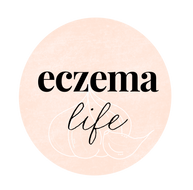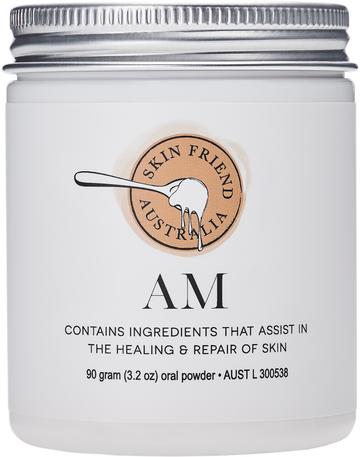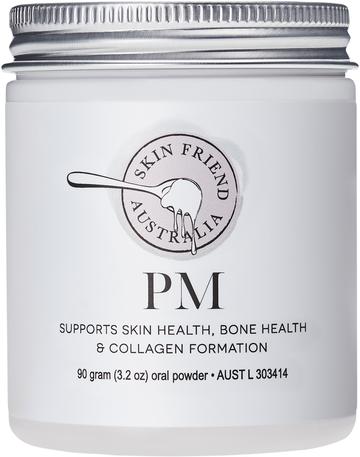What’s New in Salicylate and Amine Research?

If you have been following The Eczema Detox or The Eczema Diet, you probably know all about salicylates and amines, and why they can make eczema super itchy.
But for those who haven’t read the books by nutritionist Karen Fischer, here is a quick rundown.
Salicylates are natural pesticide chemicals produced by plants for self-protection and are found in many fruits, vegetables, herbs, nuts and spices. Salicylates work as a natural food preservative which can cause issues in certain individuals (especially those who find they react to preservatives and environmental chemicals).
According to extensive research by Loblay and Swain from the RPA Hospital Allergy Unit, salicylate sensitivity can trigger or worsen eczema symptoms in 52% of eczema sufferers and 62% of those experiencing hives. As far as eczema research goes, this is a significant statistic as eczema treatments are often rich in salicylates and people wonder why they adversely react to them. If you react to perfumes, essential oils and other fragrances or aspirin, you are highly likely to be sensitive to salicylates. Teas, herbal remedies, coconut oil and avocado are also rich in salicylates, so these are unsuitable for 52% of people with eczema.
If you have tried everything and you still have eczema, check for salicylate intolerance... In this group of people with 'tricky/stubborn' eczema, your eczema won't clear up until you diagnose and address your personal chemical and food intolerances.
Amines are naturally occurring food chemicals that are formed during protein breakdown and through the process of fermentation. High levels of amines can be found in foods such as cheese, wine, beer, salmon, probiotics, fish oils, soy sauce, fermented foods and chocolate. According to research from Sydney's Royal Prince Alfred Hospital, Allergy Unit, amines can trigger or worsen eczema in 36% of eczema sufferers.
So don't presume probiotics and fermented foods are going to be right for you ... If you notice your skin getting worse when you try these things, listen to your skin.
The Eczema Diet and The Eczema Detox programs are science-based and as a result, we update our 'low chemical' food lists whenever new research comes to light. So we have some good news ... due to new research, the salicylate and amine food lists have been updated and there are some new ingredients on the ‘moderate’ and ‘low’ lists (and a couple of new foods to limit or avoid).
New low salicylate ingredients
1. Sorghum flour has been tested and is now on the low list and allowed during FID (if you don’t have an allergy to it). Sorghum flour is a lovely gluten free flour which is high in fibre and fantastic in baked goods such as our Gluten-Free Bread recipe.
2. Psyllium husks are now on the low list, but I would still test it (separately) before adding it to complicated recipes such as bread-making. Psyllium can be a great option for those who suffer from constipation as it helps to soften the stool and keep you regular. Add it to smoothies or top your porridge or 'overnight oats' with a teaspoon or two.
3. All types of cabbage are now on the low salicylate list including Chinese cabbage (Wombok). As always, test your skin's tolerance but these varieties can be used during FID program (from The Eczema Detox).
4. Lupin is now on the low salicylate list. Never heard of it? Well, lupin is a legume which is used in its flour form or as 'lupin flakes' in baking. As always, test to see if your body is not intolerant to the new ingredient if you decide to introduce this into your diet—you can do this by testing one new food every three days.
Moderate amine food list update
Duck is now on the moderate list (for its amine content) and can be considered if you are following the Eczema Detox. If you don't add any seasoning (except for salt and garlic powder), duck is low in salicylates.
Low salicylate and amine meats are skinless chicken, lamb, veal, beef and rabbit. However, keep in mind that slow cooking for long periods of time, or when keeping food overnight they will develop amines, which give them enhanced flavour.
Papaya is now on the high list for it's amine content, however due to its healing properties some can still tolerate this well on the Eczema Detox. If you have been eating papaya and the skin is continuing to heal you can consider keeping this in the diet. If you find you are still flaring or know you are sensitive to amines you may consider taking this for a period of time.
New foods to limit or avoid:

1. The new research has found that PARSLEY is now ranked ‘high salicylate’ – so if you are on the FID program you’ll need to avoid parsley until after you have tested for salicylate sensitivity. If you are on the Detox program—and are not highly intolerant to salicylates—you can have parsley in small amounts if you wish.
2. TURKEY is now on the high list (for its amine content), if you are sensitive to amines and are still flaring we suggest taking
this out of your diet (if you are eating turkey) to see if your skin improves.
Moderate salicylate list update
1. PEELED zucchini and cucumber—note I said PEELED, not with skin on—are now on the moderate salicylate list, so if you are not highly sensitive to salicylates you could add these ingredients (in moderation) to the Detox or Eczema Diet
programs (not the FID testing program). Remember to peel :)
2. All other varieties of PEELED potatoes (other than white) are now on the moderate salicylate list. For FID white potato is still the best option, however, feel free to experiment with other 'cream-looking' potato options when following the Eczema Detox or stage 2 of the Eczema Diet if you are not highly sensitive to salicylates or nightshades.
3. Butternut PUMPKIN is now on the moderate salicylate list so it may be suitable for those following the Eczema Detox program (not FID).
Some of these new additions are exciting, and you may be tempted to add peeled zucchini and cucumber to your salad straight after reading this (I know I would be). But please keep in mind there is always the possibility of individual reactions so we do suggest introducing the above foods slowly to ensure you do not confuse what foods may be causing a reaction. Enjoy these extra additions and continue to focus on fresh, alkalising wholefoods that help to nourish and heal the skin from within.
Products
At Eczema Life, we recommend nutritionist Karen Fischer's low food chemical program (The Eczema Detox) along with additive-free supplements for skin health and wellbeing. Click on the images to view more details:
Article and food images by Karen Fischer



